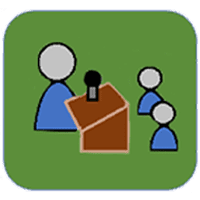Events
Modeling and mapping the potential for high-severity fire in the West
View recording. The ecological effects of wildland fire – also termed the fire severity – are often highly heterogeneous in space and time. This heterogeneity is a result of spatial variability in factors such as fuel, topography, and climate (e.g. a map of mean annual temperature). However, temporally variable factors such as daily weather and…
Gambel oak management symposium
Part 1 recordings. Part 2 recordings. Gambel oak (Quercus gambelii) is a widespread species found throughout the US Southwest and southern Rocky Mountains. While the species has been widely studied in Arizona and New Mexico, comparatively little is known about Gambel oak at the northern extent of its range (Colorado, Utah, southern Wyoming). Research in…
Evaluation of burn mosaics on subsequent wildfire behavior, severity and fire management strategies
Access recording. The Reburn Project was motivated by a need to better understand wildfires as a type of fuel reduction treatment and to assess the impacts of fire suppression on forested landscapes. The original JFSP task statement (Influence of past wildfires on wildfire behavior, effects, and management) was created to inform the National Cohesive Wildland…
Prescribed fire policy barriers: Findings from a JFSP project
Access webinar recording. USU Forestry Extension and the Southern Rockies Science Network present this special webinar: Prescribed fire is an essential management tool for restoring and maintaining fire-dependent ecosystems; however, land managers are unable to apply prescribed fire at the necessary levels. Past surveys have identified a range of policies and regulations that managers say…
Burning piles- Effects of pile age, moisture, mass, and composition on fire effects, consumption, and decomposition
Access webinar recording. Millions of acres of fuels reduction treatments are being implemented each year in the fire adapted forests of the US. Typical these fuel reduction treatments target small diameter trees for removal producing large amounts of unmerchantable woody material and elevating surface fuel loadings. Often this material has no market value and is…
Lessons learned from Learn-n-Burn events
View recording. "Learn and Burn" workshops are an excellent way for private landowners and others to gain hands-on burning experience and knowledge from expert mentors. This webinar will provide some lessons learned from coordinating these events, and tips to putting one on in the future. Participants will be provided with a template checklist, examples of…
Use of small unmanned aircraft on wildfire incidents
Webinar recording. Unmanned Aircraft, commonly called “Drones,” are being used more and more for public safety, research, etc. Falling prices, rising capabilities, and a favorable regulatory framework are all fueling this growth. This webinar looks at actual, real-world, Wildfire missions where these aircraft are being used successfully, and diver into their advantages and limitations.
Utah All Hands-All Lands Summit
Access session recordings. Use password: SAGE2019 All Lands Summit was held at the Salt Lake City Downtown Radisson Hotel on Feb 5-7, 2019.
SageSuccess Project Findings
Recording of Part I (2/20) Recording of Part II (2/21) The SageSuccess Project, a joint USGS, BLM, and USFWS effort, examines the factors contributing to big sagebrush establishment across the range of sage-grouse. In two webinars, USGS researchers will present major findings of studies on restoration, resistance and resilience, soils, population dynamics, and more. SageSuccess…
Let’s fix the fire problem: Here’s a solution
Webinar recording Fire is the first of three Great Constants in our lives. Change is the second. A web of change, consisting of population growth; density of homes built in outlying areas; new home construction; weather drying and heating; biomass build-up from fire suppression, management, etc. is converging on our communities, landscapes, economies, and collective…




